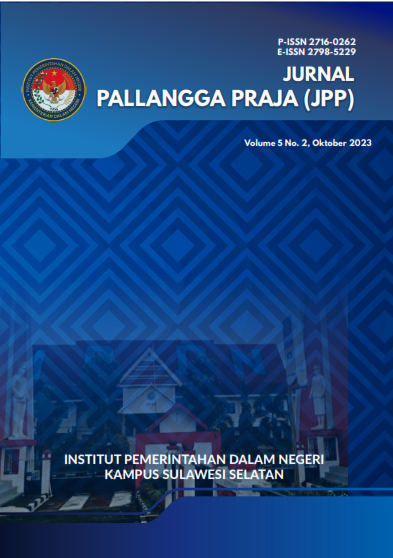Analysis of Technology Implementation In Public Services In The Field Of Education Quality at The Sidoarjo Dispendikkbud
Keywords:
implementation of technology, socio informatics, public serviceAbstract
The application of information technology in public services is a strategic step in improving the efficiency and quality of services, including in the education sector. The Education and Culture Office of Sidoarjo Regency has implemented technology through APE MUDIK (Aplikasi Pelayanan Mutu Pendidikan), which is used internally by employees to support administrative services in the field of education quality. This study uses a qualitative descriptive approach to analyze how this technology is implemented and how it impacts the service process. Data collection techniques are carried out through interviews and observations of employees and interns involved in system operations. The results of the study indicate that APE MUDIK contributes to increasing employee work effectiveness and neatness of data management. However, this system cannot be used directly by the community and still faces technical obstacles such as network disruptions. From a Socio Informatics perspective, the use of APE MUDIK has changed work patterns and social interactions in the education bureaucracy environment.
Downloads
References
Adila, S., & Rodiyah, I. (2024). Memajukan Pendidikan Melalui Program Digitalisasi yang Efektif di Indonesia. 1(5), 1–16.
Amrullah, M. (2022). Implementasi Penggunaan Teknologi Informasi Dan Komunikasi Dalam Meningkatkan Layanan Administrasi di Smk Negeri 2 Wajo.
Andry, & Sawir, M. (2024). Membangun Budaya Pelayanan Publik yang Ramah : Implementasi Teknologi Digital dalam Birokrasi Pemerintahan. 6(2), 216–228.
Deha, D. (2024). Peran Teknologi Informasi dalam Meningkatkan Efisiensi Administrasi Pada Perguruan Tinggi.
(2), 1–10.
Efendi, K., Handayani, T. N., & Rifai, M. (2022). Model Inovasi Pelayanan Publik di Kabupaten Sragen Provinsi Jawa Tengah. 1.
Febryan, D., Erviantono, T., & Winaya, I. K. (2015). Implementasi Pelayanan Publik
Berbasis Teknologi Informasi ( Studi Kasus Di Badan Pelayanan Perizinan Terpadu Dan Penanaman Modal Kota Bogor). 1–9.
Kristian, I., Harky, R. N., & Ristala, H. (2024). Peran E-Government Dalam Meningkatkan Transparansi Publik Di Indonesia (Studi Kasus Pada Pemerintah Kabupaten Bandung. 7(2), 252–263.
Mulyono, Haryati, T., & Wuryandini, E. (2025).
Digitalisasi Pendidikan: Peluang dan Tantangan dalam Peningkatan Kualitas di SMK PSM Randublatung. 5, 470–475.
Prakoso, M. A., Aji, S. W., Ryandana, A., Febrian, R., Widit, R., & Tengah, J. (2025). Transformasi Digital dalam PelayananPublik :AnalisisImplementasi Aplikasi PRO Denpasar Sebagai Model E-Government di Indonesia. 6(1), 255–
Widhiastono,R.(2022). KesiapanTransformasi Digital Terhadap Sumber Daya Manusia pada Organisasi Perangkat Daerah ( OPD ). 4(4).
Zein, M. H. M., Prasutra, D. F., & Septiani, S. (2024). Implementasi Kebijakan E-Government dalam Administrasi Kepegawaian. 1(3), 107–119.



